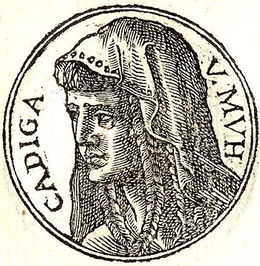Template:Pictorial-Islam-options: Difference between revisions
| [checked revision] | [checked revision] |
mNo edit summary |
mNo edit summary |
||
| Line 1: | Line 1: | ||
<noinclude>Also see: [[Template:Pictorial-Islam]]</noinclude><!-- HELP NOTES: Each option tag handles one random story --><choose> | <noinclude>Also see: [[Template:Pictorial-Islam]]</noinclude><!-- HELP NOTES: Each option tag handles one random story --><choose> | ||
<option weight="1">{{Pictorial-Islam|1=Creation of Humans from Clay|2=[[File:Khnum creation from clay.gif|110px|link=Creation of Humans from Clay]]|3=This article analyzes Harun Yahya's claim that the Qur'an displays scientific foreknowledge by correctly asserting the creation of human beings from clay. | |||
The Qur'an's assertion that humans are created from clay is not a scientific miracle because it is apparent that folkloric tales about the creation of humans from clay/earth/mud is very common throughout the world, and many of these tales pre-date the existence of Islam. | |||
It is also scientifically inaccurate because the Islamic faith claims that human beings were created from clay, contrary to the scientific hypothesis that clay merely 'match-makes' RNA and membrane vesicles - and therefore does not form a building block. ([[Creation of Humans from Clay|''read more'']])}}</option> | |||
Revision as of 16:57, 8 February 2014
Also see: Template:Pictorial-Islam
|
